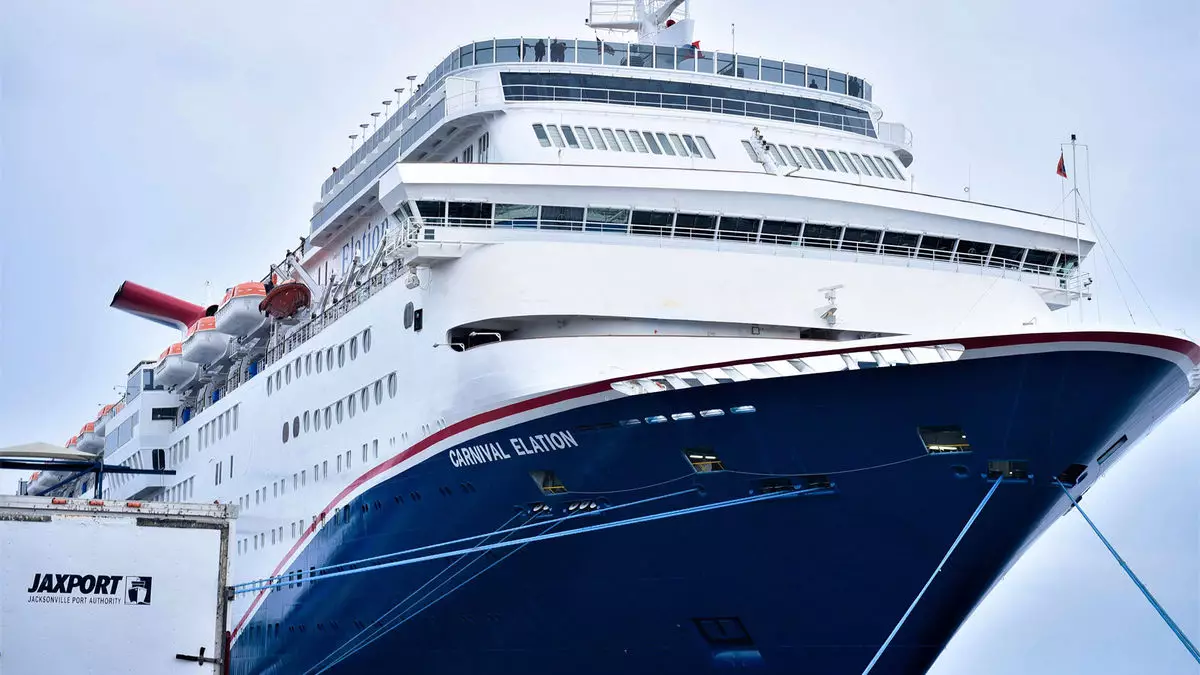Hurricane Milton has caused significant disruption to the cruise industry in Florida, with numerous ships delayed in their return to various ports across the state. As the hurricane continues to make its way through the region, cruise lines are scrambling to assess the damage and make alternative plans for their fleet, which has a far-reaching impact not only on travelers but also on the local economies that depend on tourism.
Florida’s ports serve as the lifeblood of the cruising industry, and their rapid reopening is critical for the sector’s recovery. Port Tampa Bay announced that it would be assessing infrastructure damage in collaboration with federal agencies like the U.S. Army Corps of Engineers and the U.S. Coast Guard. Initial reports indicated that while some buildings suffered minor damage, the docks themselves remained relatively intact, which is certainly a relief for cruise operators eager to resume operations.
The port’s closure on October 10 has had a cascading effect on cruise schedules. For instance, the Carnival Paradise, which typically calls Tampa home, found itself stranded at sea after departing on a four-day voyage on October 6. Carnival has had to cancel the Paradise’s planned sailings in response to the port’s closure, demonstrating the tight schedules that define cruise operations and the risks associated with unpredictable weather patterns.
Hurricane Milton’s timing has caused several cruise lines operating out of Tampa to rethink return dates and itineraries. Royal Caribbean’s trio of ships—Enchantment of the Seas, Grandeur of the Seas, and Serenade of the Seas—are currently in a holding pattern, trying to finalize their returns to port. The originally scheduled return dates have been thrown into question, illustrating the uncertainty that hurricanes introduce to maritime logistics.
As ships remain in limbo, passengers on board are left anxiously awaiting news. Not only do they face potential changes to their planned itineraries, but they also must contend with last-minute adjustments that may affect their travel plans back to home ports. The situation underscores the delicate balance cruise lines must strike between ensuring customer welfare and adhering to logistical constraints in scenarios like those created by Hurricane Milton.
Unfortunately, the delays aren’t confined to Tampa alone. Port Canaveral, another key point for cruise travel in Florida, is also facing disruptions, causing headaches for major lines such as Disney Cruise Line and Carnival Cruises. The cancellation of scheduled voyages, such as the Disney Wish’s departure originally set for October 11, reveals the immediate financial impacts that natural disasters can impose on cruise lines.
Furthermore, some ships are reconfiguring their itineraries altogether; Royal Caribbean’s Adventure of the Seas had to forgo a scheduled stop in Curacao, which not only disappoints passengers looking forward to that destination but also affects revenue at those ports. Shortened voyages or missing stops have a ripple effect on travel plans, port revenues, and local businesses reliant on tourism.
Notably, Miami and Fort Lauderdale haven’t escaped the hurricane’s wrath either. Carnival Sunrise, initially scheduled to return to Miami on October 10, has already announced plans for a revised docking on October 11, impacting subsequent itineraries. Meanwhile, the enormous Sun Princess, concluding a transatlantic journey, pushed back its scheduled disembarkation at Port Everglades. The potential financial implications for all the ports involved are significant, as each delayed cruise not only represents lost revenue for the cruise operators but also for local businesses that depend on passenger traffic.
The combined effect of Hurricane Milton on Florida’s cruise industry serves as a reminder of the vulnerability of maritime travel, particularly during hurricane season. With unpredictable weather patterns becoming more common, cruise lines must heighten their preparedness for such eventualities, not only in terms of operational logistics but also in communication and passenger relations.
Hurricane Milton has emerged as a formidable force affecting multiple aspects of the cruise industry in Florida. As cruise lines navigate the aftermath and operational uncertainty, it is crucial for them to develop strategies to mitigate impacts from future natural disasters, ensuring they maintain favorable relationships with passengers, local economies, and regulatory bodies alike. The challenges will be many, but with each hurricane season, the industry has the opportunity to learn and improve its resilience.


Leave a Reply